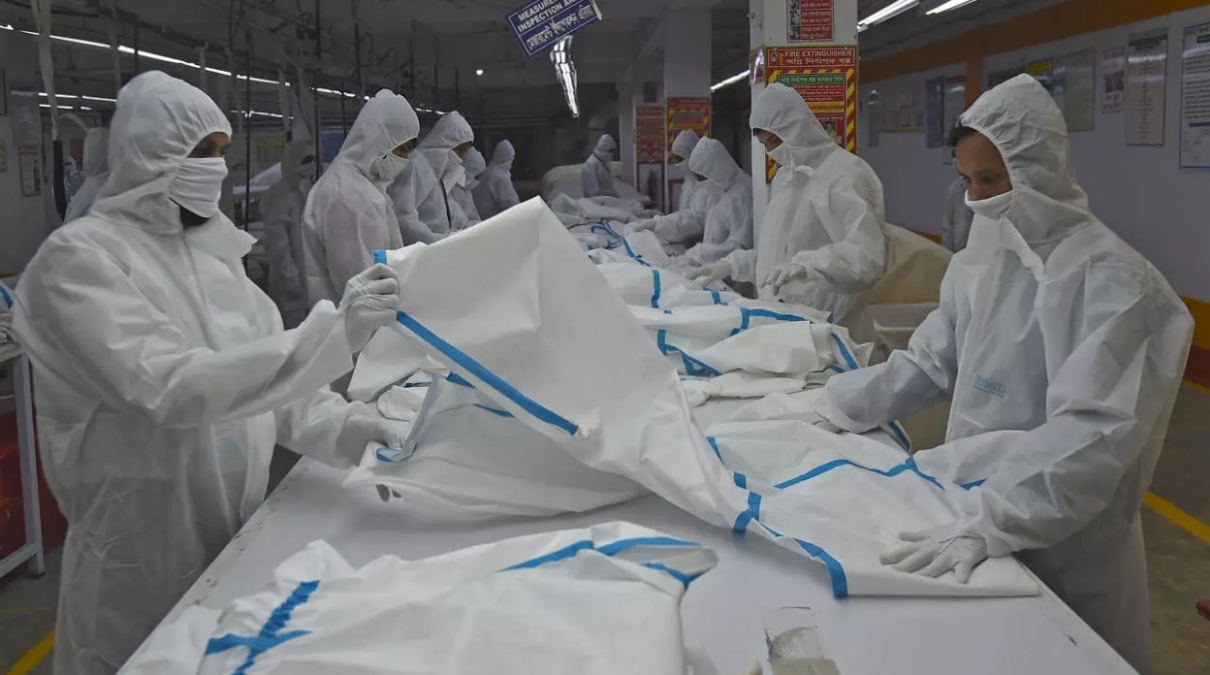Bangladesh is not new to disasters or major humanitarian crises. The Covid-19 pandemic, however is a crisis of a completely different magnitude and one that requires a response of unprecedented scale. Bangladesh’s leaders of both public annd private sectors must come together to respond to the threats to health systems and the long-term effects to the country’s economy.
Bangladesh has started exploring destinations for exporting globally-certified personal protective equipment (PPE) in a bid to help the world fight the novel coronavirus.
Twelve textile companies have already started production to supply PPE to the local market, and they have also been requested to export it to four countries, said Safiul Islam Mohiuddin, former president of the Federation of Bangladesh Chambers of Commerce and Industries. The countries are the United States, Kuwait, Sri Lanka and Nepal, according to Mohiuddin, who is also a lawmaker from the ruling party.
He told The Business Standard that they have discussed the issue with the commerce minister and top tax officials.Mohiuddin said, “Four countries have already sent their demand letters to Bangladesh for sourcing high-quality PPE. But our textile mills can only manufacture the chemical resistant clothing (level 1/2) right now.”The PPE, which will be exported, are made of other fabrics and raw material, he added.Local manufacturers have already sought the World Health Organisation’s technical collaboration for meeting the standard of professional and medical PPE, Navidul Huq, a director of Niche Stitch Ltd, told The Business Standard earlier this week.
Currently, the procurement of raw material for the specialised fabrics is the main challenge, said Huq who has been coordinating the making of PPE by a dozen garment factories for the domestic demand. Presently, very few factory in Bangladesh has a dust-free and medical-grade environment, which is a must for producing professional and medical grade PPE (level 3/4).According to the WHO, there are four levels of PPE. These are full-face or half-mask, air-purifying respirator (level-1); chemical resistant clothing – one-piece coverall, hooded two-piece chemical splash suit, chemical resistant hood and apron, disposable chemical-resistant coveralls – (level 2); gloves, outer and chemical resistant (level 3); and gloves, inner and chemical resistant (level 4).
The demand for PPE skyrocketed after Bangladesh detected its first coronavirus patient on March 8. Doctors and nurses are now concerned about their health safety with the possibility of an onrush of Covid-19 patients as Bangladesh lacks quality protective equipment for health personnel – a prerequisite to treat such patients.Other professionals such as police and drivers both from private and public sectors also want PPE for their safety.The situation has forced some garment manufacturers to go for production of primary PPE, a substitute for level 1 and 2.
Covid-19 has spread to around 200 countries and killed over 5.9 lakh people in the world. And as far as Bangladesh is concerned, 2547 people have already seen the face of death till today.
It has already rattled the world economy into a recession, and experts are uncertain over when the situation will improve. But wait, we are not finished yet. As recently, Beximco Group, a Bangladeshi corporate giant, has exported 6.5 million PPE gowns to the USA. With which, Bangladesh joined the select group of countries that manufacture world class, large-scale PPE. So, we are hoping to see the shining armour in the enigma of darkness to show us the way for our living as Bangladesh is on the way of establishing its position to become a new hub for PPE manufacturing.
Writer Info:
Fahmida_Hossain
Ahsanullah University Of Science and Technology
Dept. Of Textile Engineering
Batch: 39


